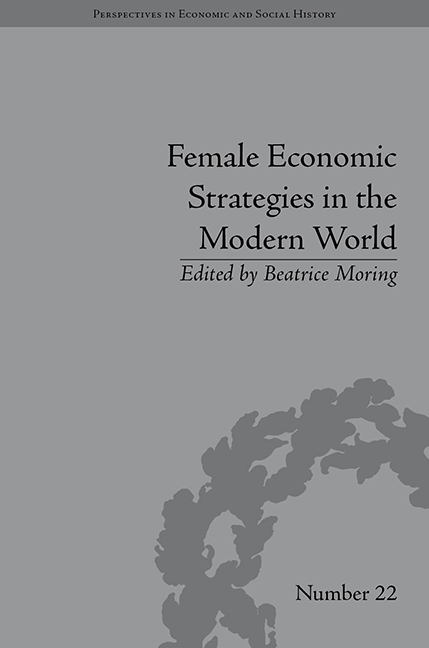Book contents
- Frontmatter
- Contents
- List of Contributors
- List of Tables
- Introduction
- 1 Widows, Family and Poor Relief in England from the Sixteenth to the Twentieth Century
- 2 Survival Strategies of Poor Women in Two Localities in Guipuzcoa (Northern Spain) in the Nineteenth and Twentieth Centuries
- 3 Women, Work and Survival Strategies in Urban Northern Europe before the First World War
- 4 Women, Households and Independence under the Old English Poor Laws
- 5 The Economic Strategies of Widows in Switzerland from the mid-Nineteenth to the mid-Twentieth Century
- 6 Mexico: Women and Poverty (1994–2004): Progresa-Oportunidades Conditional Cash Transfer Programme
- 7 Gender and Migration in the Pyrenees in the Nineteenth Century: Gender-Differentiated Patterns and Destinies
- 8 Women and Property in Eighteenth-Century Austria: Separate Property, Usufruct and Ownership in Different Family Configurations
- Notes
- Index
4 - Women, Households and Independence under the Old English Poor Laws
- Frontmatter
- Contents
- List of Contributors
- List of Tables
- Introduction
- 1 Widows, Family and Poor Relief in England from the Sixteenth to the Twentieth Century
- 2 Survival Strategies of Poor Women in Two Localities in Guipuzcoa (Northern Spain) in the Nineteenth and Twentieth Centuries
- 3 Women, Work and Survival Strategies in Urban Northern Europe before the First World War
- 4 Women, Households and Independence under the Old English Poor Laws
- 5 The Economic Strategies of Widows in Switzerland from the mid-Nineteenth to the mid-Twentieth Century
- 6 Mexico: Women and Poverty (1994–2004): Progresa-Oportunidades Conditional Cash Transfer Programme
- 7 Gender and Migration in the Pyrenees in the Nineteenth Century: Gender-Differentiated Patterns and Destinies
- 8 Women and Property in Eighteenth-Century Austria: Separate Property, Usufruct and Ownership in Different Family Configurations
- Notes
- Index
Summary
I thank God I am indeed endued with such qualities that if I were turned out of the realm in my petticoat, I were able to live in any place of Christendom. – Queen Elizabeth I, 1566
I have been the more particular in describing the Management of this School, because the Ladies, who have the Oversight of it, seem to have carry'd it to the utmost Perfection, so as to enable the Children to shift honestly by their own Industry, if it should be their lot to be cast into any Part of the Kingdome where they might be friendless. – A Letter from a Gentleman at Greenwich to his Friend in London, regarding the Girls School at that Place, 1724.
These quotations are separated by a chasm as wide chronologically as socially, but they express a common ideal of early modern English society: every person, regardless of circumstance, should be able to support herself independently. This valuing of self-sufficiency has important implications for the lives of poor women, especially in relationship to their household and family. As recent research has demonstrated, family economies were essential to the maintenance of independence, and that independence was the essence of the aspirations and self-image of even the lower classes. And yet, of course, it could be extremely difficult for poor women, especially, to develop effective strategies for self-reliance, and it may seem problematic to assume that the poor shared the well articulated ideals of their economic ‘betters’.
- Type
- Chapter
- Information
- Female Economic Strategies in the Modern World , pp. 73 - 88Publisher: Pickering & ChattoFirst published in: 2014



